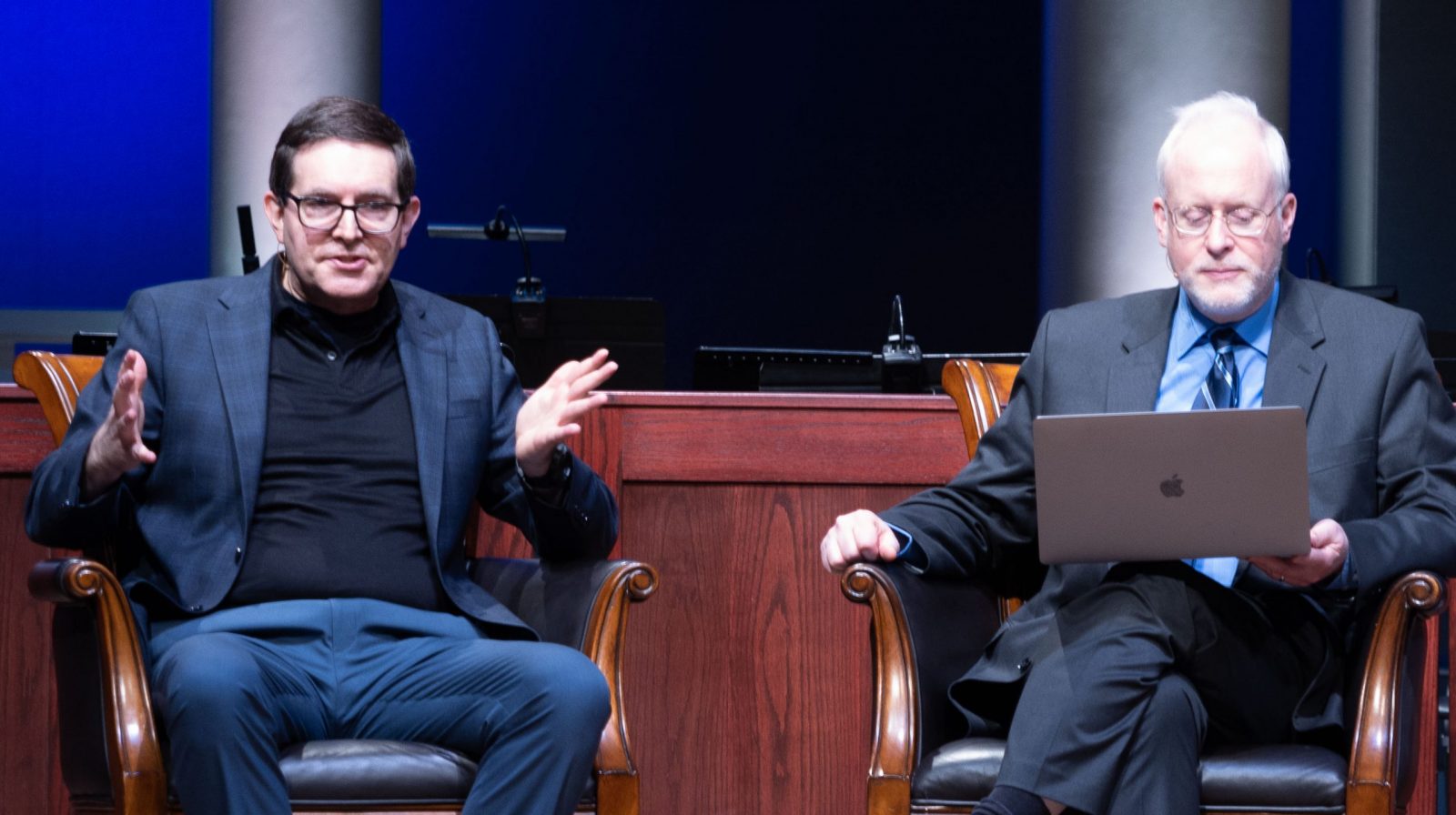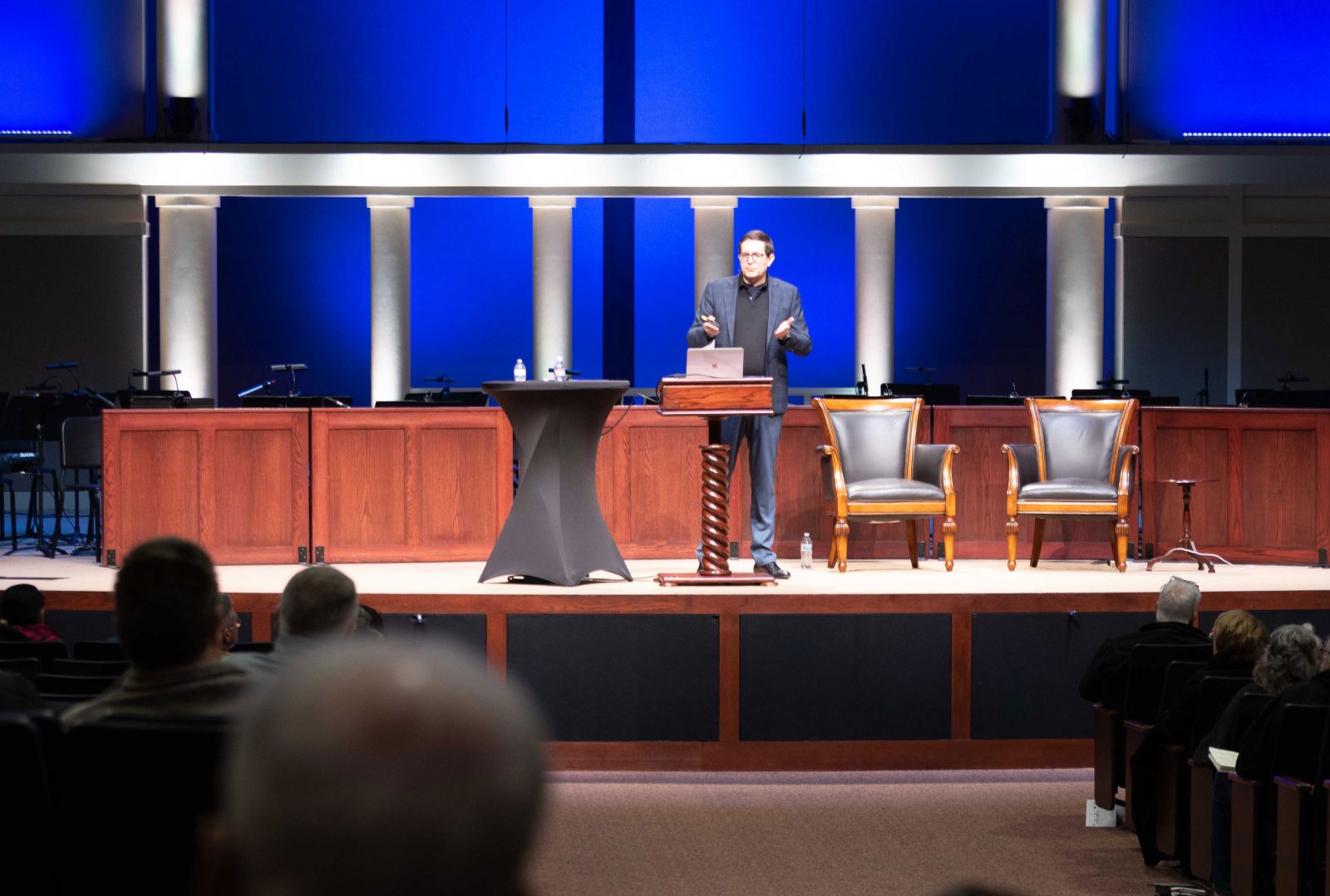


Brian Miller on the Limits of Protein Evolution

The Optimal Design of Our Eyes

Brian Miller on the Gift of Vision

A New Design Inference for a New Generation

The Return of Natural Theology

Ann Gauger on Her New Book, God’s Grandeur: The Catholic Case for Intelligent Design
Today’s ID the Future spotlights the richly stimulating new book, God’s Grandeur: The Catholic Case for Intelligent Design. Edited by biologist Ann Gauger, the anthology explores the evidence for intelligent design from a Catholic perspective, with contributions from an impressive range of Catholic scientists, philosophers, and theologians, including Gauger; internationally renowned paleontologist Günter Bechly; philosopher Jay Richards; molecular biologist Michael Behe; Rector of the European University in Rome Fr. Pedro Barrajón, LC; Aquinas and Evolution author Michael Chaberek; philosopher J. Budziszewski; professor of neurosurgery Michael Egnor; and noted Dante scholar Anthony Esolen. Listen in as Gauger gives a quick flyover of the book’s content, tells how she found her way into the intelligent design fold, and explains why Catholics should reject modern evolutionary theory, not only on theological grounds but scientific ones as well. Is it just for Catholics? Gauger says that the vast majority of the theological arguments will resonate with Christians of every stripe, and the parts focused on science and philosophy should resonate with anyone seeking to determine the best, most reasonable explanation for the origin of life, the universe, and the human race. Get your copy of the book here.

Brian Miller Q&A: Engineering in Biology, and THE Engineer
On today’s ID the Future, host John West sits down with physicist and engineer Brian Miller to pitch him questions submitted at the Dallas Conference on Science and Faith. Is the Bible against the pursuit of knowledge about the natural world, or for it? Are microevolutionary changes in various organisms consistently driven by random mutations and natural selection, or instead, are some made possible by pre-programming in the organism, programming that gives the organism a built-in flexibility to adapt to its environment, within limits? If living systems were deliberately engineered, how good of an engineer was the engineer behind living systems? And if so, what are the implications for the evolution/design debate? Also, what do engineering insights regarding optimization processes tell us about unguided evolution’s ability (or inability) to generate macroevolutionary change? Tune in as Miller answers these and other questions.

Brian Miller: The Surprising Relevance of Engineering in Biology
Today’s ID the Future brings listeners physicist and engineer Brian Miller’s recent lecture at the Dallas Conference on Science and Faith, “The Surprising Relevance of Engineering in Biology.” Miller rebuts several popular arguments for evolution based on claims of poor design in living systems, everything from the “backward wiring” of the vertebrate eye to whales, wrists, ankles, and “junk DNA.” But the main emphasis of this discussion is the exciting sea change in biology in which numerous breakthroughs are occurring by scientists who are treating living systems and subsystems as if they are optimally engineered systems. Some in this movement reject intelligent design for ideological reasons. Others embrace it. But all systems biologists treat these systems as if they are masterfully engineered systems, and that perspective is rapidly accelerating progress in experimental biology. At the forefront of this work is the Conference on Engineering in Living Systems (CELS). Miller provides an exciting sneak peek at some of the cutting edge research from members of this group.

Origin-of-Life Mystery at the University of Tokyo, Pt. 2
Today’s ID the Future is Part 2 of physicist Brian Miller exploring a recent report from the University of Tokyo claiming a big breakthrough in origin-of-life research. As Miller and host Eric Anderson make clear, the university’s laboratory work on RNA, detailed in a recent Nature Communications article, involved the intelligent interference of the lab scientists and, despite this intelligent interference, the devolution of RNA rather than the evolution of increasing RNA sophistication. Miller says that it’s ironic that Steven Novella, a scientist committed to puncturing science hype, seems to have fallen for the hype surrounding this laboratory work. Miller and Anderson go on to discuss critiques of origin-of-life tall-tale claims, critiques coming Robert Shapiro, James Tour, and others. Life, Miller says, requires organizational blueprints and design logics already in place to battle against nature’s relentless tendency toward entropy. Without those sophisticated organizational blueprints already instantiated in living cells and sophisticated molecular machinery, natural forces appear utterly powerless to pull off the kind of creative design work required to move from non-life to life.